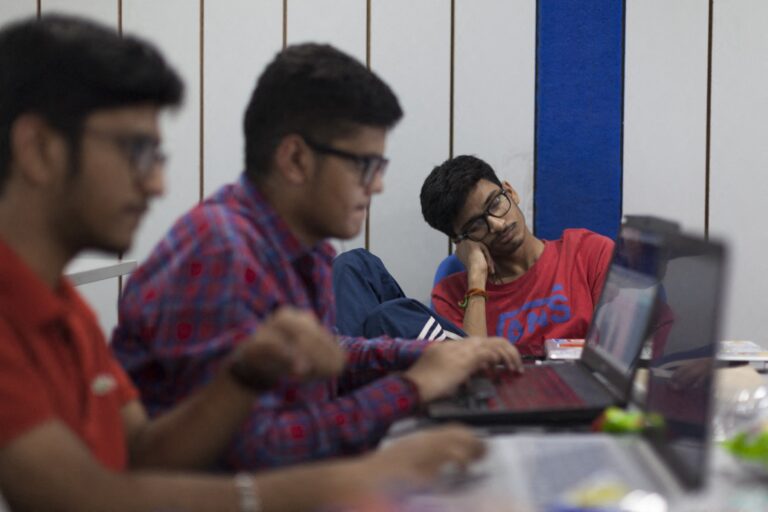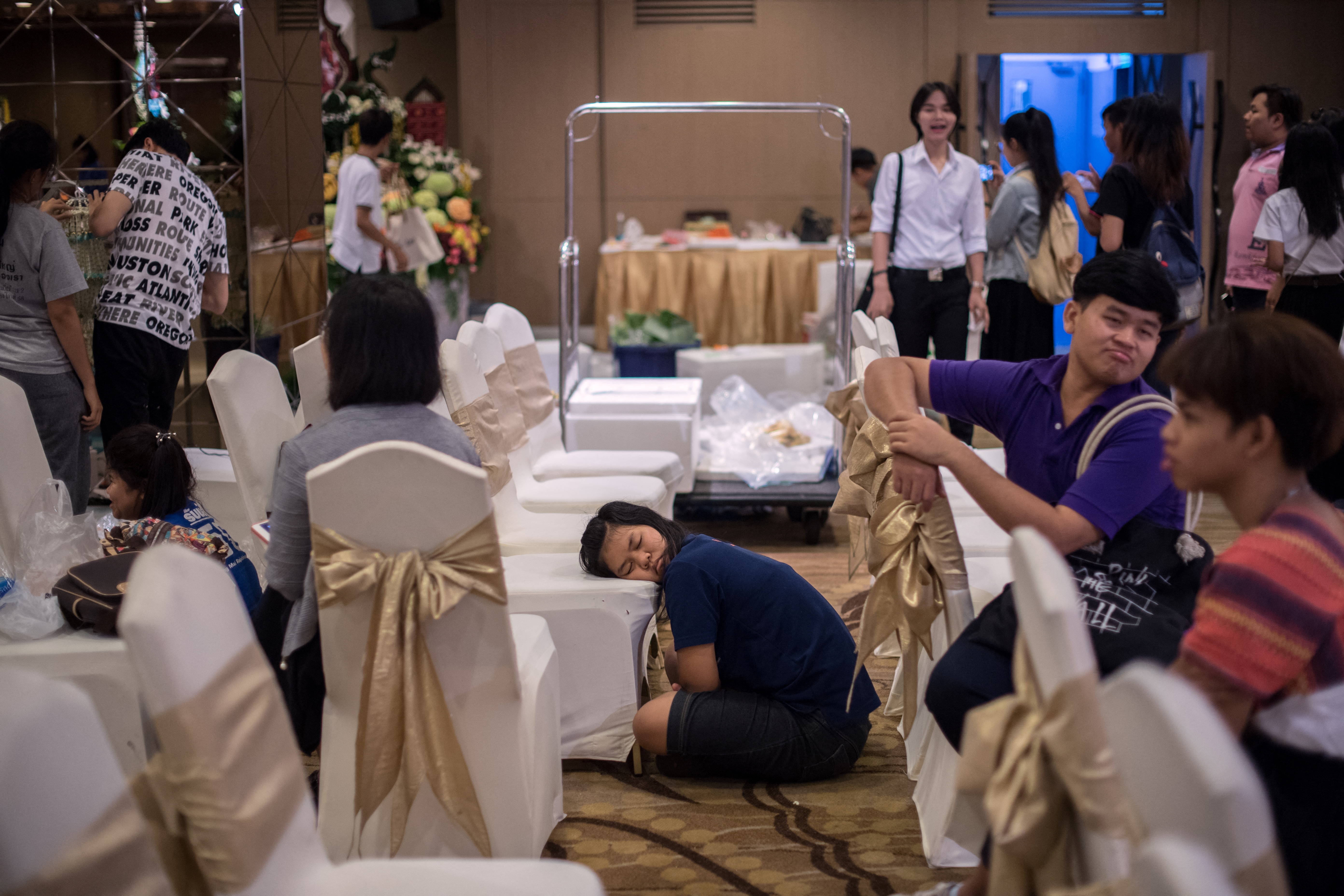
Have you ever tried to get some studying done for your upcoming exams but started nodding off the moment you have your books out?
Your solution to dozing off might be to get some caffeine in your system, but there are better methods as to how to stay alert while studying.
It goes beyond pulling all-nighters too, which worsens the problem of staying alert.
Interestingly, a 2022 report found that hard mental work alters brain metabolism by causing the build-up of a neurotransmitter called glutamate in the prefrontal cortex. In simple English, that means that the harder you work your brain, the more cognitive fatigue increases.
It’s like exercising — the harder you work out, the more tired you end up being; it applies to the brain too.
And without enough rest, you’ll end up getting brain fog.
Brain fog is believed to be caused by overworking, lack of sleep, spending too much time on the computer, and stress.
It’s like when the right word to use in a sentence escapes you, or you walk into a room and forget what you were about to do — that’s brain fog.
Other symptoms include difficulty concentrating, feeling mentally exhausted, struggling to think clearly, getting dizzy spells, and having headaches.
So how would the average student, who is no stranger to stress, exam anxiety, and lack of sleep, deal with it?
Well, we have some solutions below:
10 ways on how to stay alert while studying

Overeating and having heavy meals can lead to negative side effects on your physical and mental health. It can often make you tired and irritable, hindering your ability to stay alert. Source: AFP
1. Avoid heavy meals, especially carbs-heavy ones
As you know, a result of eating heavy meals is a “food coma,” something you most definitely do not want to have when you’re studying for your exams.
Studies have shown that eating large meals while studying can interfere with one’s ability to focus and retain information, as it diverts blood flow from the brain and other organs to your intestines.
Eating refined carbohydrates (bread, chips, etc.) and foods with high sugar will weaken your memory and cause you to get tired more quickly, as they spike and crash your blood sugars.
Instead, try snacking on low-fat yoghurt, crackers with cheese, or nuts to help you stay alert and awake.

While studying in bed is a dream, it will sabotage your productivity. It may lead to procrastination and distract you from getting any studying done. You might even end up falling asleep. Source: AFP
2. Avoid studying in your bedroom
This is a must-do, especially if you want to practice ways to stay alert while studying.
While studying in your bedroom may seem convenient, especially for dorm students, it’s never a good idea. Your bedroom is known as a place of rest and sleep, and that’s registered in your brain and it will then try to prepare you to relax and sleep, making you sleepy and lowering productivity.
Oopt for studying in libraries, study halls, or even cafes. You can try studying in test-like locations to stimulate your exam environment and help you focus and mentally prepare for the exam day too.
If you need a change of scenery, and if the weather permits, study in a park and get some sun while out. Studies have shown that Vitamin D deficiency is associated with fatigue, headache, and musculoskeletal pain and weakness — all of which can be avoided if you get a healthy dose of sunlight.
Now that’s hitting two birds with one stone.
3. Change your study environment each day
This advice might sound a little silly and a hassle, but it’s recommended that you change your study environment each day.
Changing your study environments can help you retain information and help break the lousy studying habits you may have. For example, if you’re studying in a coffee shop, what you have learned may return to you if you visit the same shop a few days later.
Better yet, a recent brain-scan study sheds light on how people’s brains divide continuous experiences into meaningful segments, like scenes in a movie.
This theory explains that the shifts in our environment may dictate when we’ve “entered a new scene,” or instead, the brain may somehow determine the boundary between scenes. Using this theory, you can associate each new “scene” with what you’ve revised for too — neat, right?

Athletes often chew gum, which may help increase blood flow to the body’s muscles and help players focus on the game. Source: AFP
4. Chewing on mint-flavoured gum can help wake your brain up
If you don’t chew on gum, you should start doing so, especially if you’re studying for an exam.
Chewing gum contributes to improving short-term memory and is a way to reduce exam stress and anxiety. It can also increase heart rate and cerebral blood flow, bringing more blood to the brain and causing us to “wake up” and be more alert.
Make sure that you choose mint-flavoured gum as the taste and odour of mint is known to stimulate memory areas of the brain.
However, it is recommended to be done in moderation as it can cause jaw issues and health problems, such as tooth decay and headaches.
5. Eat a balanced diet and snack healthily
It’s simple: eating a balanced diet can help students learn and perform better academically by enhancing concentration, boosting moods, and improving energy levels.
While you might be tempted to pass the salad for the mac and cheese or start cracking into your microwaveable meals, you’ll feel much better if you dig into a balanced meal filled with the right amount of protein, fibre, and all the other vitamins.
And if you’d like to treat yourself to a snack for a job well done in revision, opting for brain foods like edamame or almonds can be a much better choice with all the nutrients you can get out of it.
6. Host group study sessions so people can keep you accountable
While some may think studying with friends can be distracting, hosting a group study with people committed to achieving a good grade can benefit you and help you stay alert while studying.
This Quora user agrees: “I found it to be a lifesaver for this challenging course. Make sure that it’s a study session, not a copy session. Make sure every student contributes, or the session will do that student no good.”
To fully utilise this approach, everyone should be prepared, organised, and focused. You’ll want to pick an appropriate place to study as well, like reserving a study room in the library instead of making a ruckus out in the open.
7. Schedule breaks
Breaks are essential, especially if you’re studying for an exam that requires you to focus on topics you’re unsure about.
According to NIH researchers, taking breaks can help our brains learn new skills or information. The researchers found that during rest, the brain rapidly and repeatedly replays faster versions of the activity than when practised.
While it’d be great if you could sit down and revise for four hours non-stop, taking the occasional five-minute break every 45 minutes. Alternatively, a popular method is the Pomodoro technique, which has you work for 25-minute minutes and take a five-minute break after every session.
Be careful not to start doomscrolling social media during your breaks though — or if you do, be sure you hold yourself accountable and get back to revising when the timers up.
If you need an extra hand, there are a few apps that can help you focus — check it out here.

If you don’t get enough sleep, you might have trouble learning, focusing, and even judging other peoples emotions and reactions. Source: AFP
8. Get enough sleep
Sleep deprivation reduces your learning ability by 40%, causing impaired thinking and increased irritability, which can distract you when studying.
Unfortunately, it seems like university students are one of the most prone to it — a study showed that 75.6% of university students reported getting less than seven hours of sleep a night.
Exam periods worsen the numbers too.
A different study shows that students demonstrated the prevalence of poor sleep quality increasing from 59% to 98%. This led to declining academic performance during high-stress periods, such as exams. On the flip side, students who adhered to a regular sleep-wake routine in the two weeks before their end-of-semester exams tended to perform better academically.
One of our best tips to get a good night’s sleep is to avoid coffee or energy drinks after 4 p.m., keep your bed comfortable, and get off social media before bed.
9. Study in a well-lit room, especially under cool white light
The lighting in the room you’re studying in is vital to staying alert while studying.
A study published in the National Library of Medicine found that exposure to blue light (5000K to 6500K) in the evening may negatively affect sleep quality, making it harder to fall asleep but the best light to study with.
When setting up your lighting, ensure there’s no glare, as it can mess with your concentration. You’ll also want to use an LED bulb as it provides brighter and more focused illumination.

If you master the art of napping, you can join the National Siesta Championship in Spain and stand a chance of winning the cash prize. The championship is an annual contest with a simple challenge: to fall into a deep slumber for 20 minutes. Source: AFP
10. Take 10- to 20-minute power naps
While taking one- or two-hour naps is discouraged, a 10-minute to 20-minute power nap is a way for you to go if you’re trying to find ways on how to stay alert while studying.
Studies have shown that power naps can help maintain your brain’s focus throughout the day by providing rest and rejuvenation without entering deeper stages of sleep, which often leads to grogginess when you wake up.
Naps shorter than 30 minutes put you in a better mood too. But go more than 90 minutes, and you’ll wake up groggy and disoriented — a far cry from how you want to feel when you’re hitting the books again.










